Celebrating International Women's Day 2019
20 February 2019
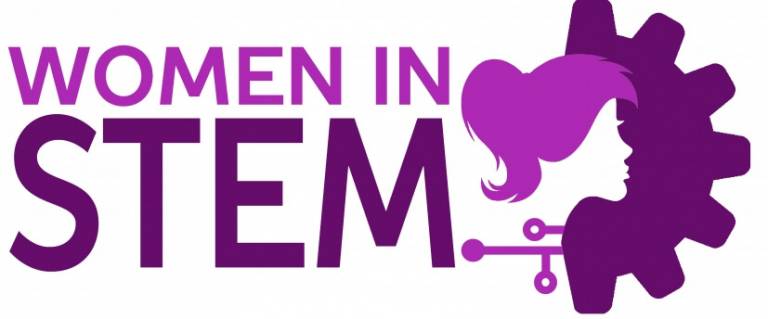
To celebrate International Women's Day, we hear from a few of our female workforce, from students to professional services staff to academics to see why they chose a career in Higher Education, specifically in STEM and who inspired them from a young age.
Jadranka Butorac:
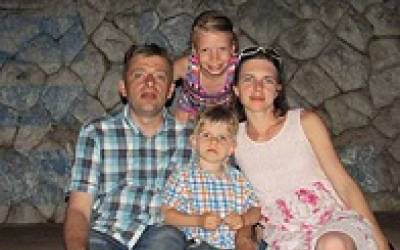
“I chose to work in Higher Education because the working arrangements fit well with the caring responsibilities for two of my kids
.
Claire Carmalt:
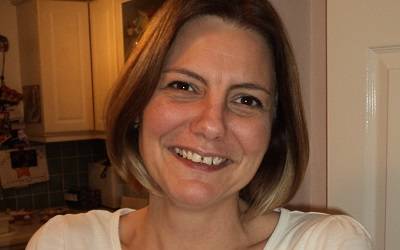
“My advice to other women looking to have an academic career is to believe in yourself - you can do it if it’s what you really want.
Gemma-Louise Davies:
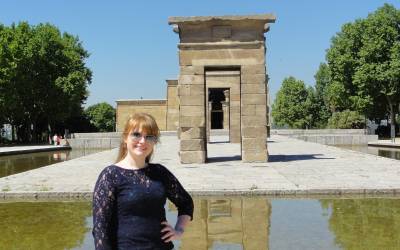
“What advice would I give others looking to have an academic career? Do it! Excellent ideas and progress are borne from diverse thinking!
Helen Fielding:
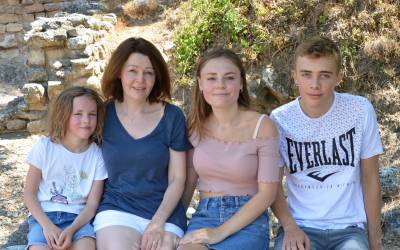
“Challenge yourself, you will probably surprise yourself by making a success of things you didn’t think you could do.
Helen Hailes:
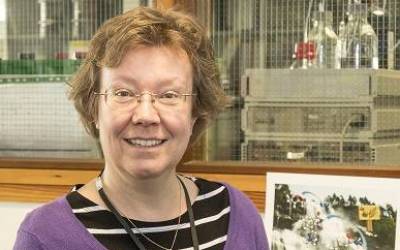
“I have been fortunate to have some wonderful collaborators and colleagues in other departments as well as in Chemistry and external to UCL.
Vicky Hilborne:
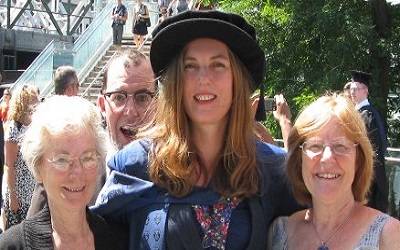
“I am fortunate to have encountered much kindness and support, yet I still struggle to ask for help.
Katherine Holt:
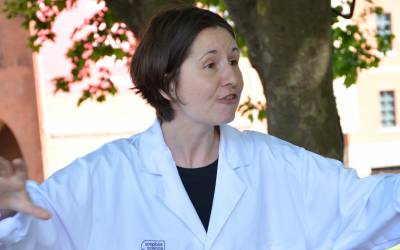
“You should also say yes to opportunities, especially if they scare you a bit.
Caroline Knapp:
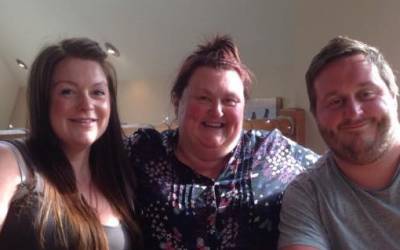
“UCL Chemistry has always been supportive, with fantastic facilities, a great mentoring system and helpful colleagues.
Nicola Phillips:
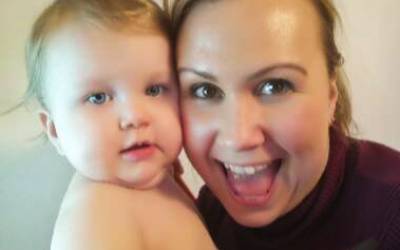
“I believe the department is making great efforts to address equality, diversity and inclusion.
Sally Price:
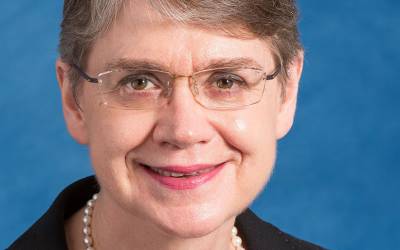
“A friendly and collegiate atmosphere is the best support, which I have appreciated ever since I gained through experience in many “enabling” roles as a lecturer.
Adrieene Thomas:
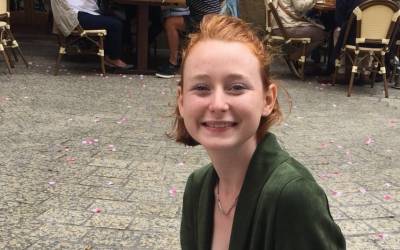
“I'm passionate about the environment and reducing the effects mankind have on our planet, and chemistry has given me a great leap-pad to jump off from.
Viliyana Tsanova:
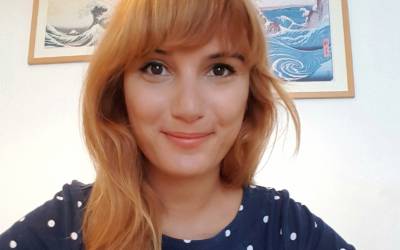
“Never give up your dreams and never believe that you are not smart enough to follow a career in academia.
Jadranka Butorac:
I chose to work in Higher Education because the working arrangements fit well with the caring responsibilities for two of my kids. I was inspired by women in Science and Maths from a young age. I find it difficult to get promoted in Higher Education. My advice to others looking to have a career in Higher Education is to look carefully at where you want to be in the next five years as the first step, then ten years and apply for jobs accordingly. Do not choose the easy route, but the one which will enable you to have a career.
I was on maternity leave in Croatia from 2006-2007, after having worked as a research assistant for a year. However, while I was on maternity I was looking to apply to do a PhD in the UK which I started in 2007. I can therefore say that being on maternity gave me time to plan my career. The departments flexible working pattern works well for me. I believe the department could address equality, diversity and inclusion better with more funding opportunities for students from countries which are not well represented at UCL (at the moment China is the main overseas market). Supporting students to start thinking of their career from the first day of their PhD/EngD and encourage them to apply for jobs during their final year. Distribute administrative workload across all academic members of staff so that staff is given time for planning their career.
Claire Carmalt:
I chose a career in Chemistry as it was my favourite A’level subject and after going to a lecture demonstration I realised all the exciting things that could be done using chemistry. After a summer project during my undergrad degree I knew I wanted to get a PhD and stay in academia. My two chemistry teachers at secondary school - Mr T and Doc C! inspired me from a young age. They made the subject really interesting and never made me feel stupid when asking a question. Balancing workload and home life is the biggest challenge I have faced in academia. It’s so easy to get so focussed you don’t realise how many hours you are working sometimes! I took maternity leave which I didn’t feel effected my career as I kept in close contact with my group and still managed to publish a bit. Perhaps the main effect has been that I am not willing to be away constantly at conferences or meetings and hence it can take longer to get a higher profile. However, I don’t see this as a big deal as it is a choice I made since I would rather be around for my children. UCL has been a great supportive place to work - 16 years ago I started working from home in a regular pattern and still do when possible. It can make the rest of the time in work full on and very busy but has allowed me to maintain a really active research group despite being Head of Department and to balance things at home better. My advice to other women looking to have an academic career is to believe in yourself - you can do it if it’s what you really want. Don’t get disheartened by those grant and paper rejections and use all the support on offer from mentoring and peers alike.
Gemma-Louise Davies:
I did a Natural Sciences UG degree, which meant I had wide exposure to lots of different areas of science! It was the diversity of the Chemistry labs which got me hooked - I loved learning new experimental techniques and all of the different types of analyses. I had a fantastic woman science teacher in primary school - Miss D - her enthusiasm was infectious! I have had a few personal issues which means I have had some time off ill and as a career, but the places I worked were incredibly supportive. I also have a "2-body problem", but am now lucky enough to work in the same department as my husband! I have regular mentor meetings and support from HOD and HOS. We also have a lovely bunch of colleagues, who are quick to respond and lend a hand when you need it! What advice would I give other women looking to have an academic career? Do it! Excellent ideas and progress are borne from diverse thinking!
Helen Fielding:
I attended local state schools before being offered a place at a grammar school where some truly inspirational science and maths teachers encouraged me to apply to Cambridge. I was the first person in my family to go to university and when I arrived in Cambridge, I felt completely out of place! Nonetheless, I settled in. I worked hard and enjoyed myself and then chose to do a PhD in laser spectroscopy. I selected the project because it was challenging but I wasn’t entirely sure I was clever enough to do it. In fact, throughout my entire career, I have found myself choosing avenues of research or taking on roles that I am not sure I can do. But when things do work out it’s great! I have been incredibly fortunate to have had an extremely encouraging PhD/DPhil supervisor and many supportive colleagues in my field. I have had career breaks with my three children and although balancing family and work is challenging, it is fun! What advice would I give to other women considering an academic career? Challenge yourself, you will probably surprise yourself by making a success of things you didn’t think you could do.
Helen Hailes:
At school I was always good at maths and science and particularly enjoyed the problem solving and logic involved. I had two excellent maths teachers who encouraged me to excel. At University organic chemistry just ‘clicked’ and I had an excellent tutor who was very supportive of women in science. I went on to do a PhD with him and he has been a mentor throughout my career. I have faced many challenges in academia, historically there was an even larger gender imbalance and it was a difficult environment at times for young female academics. I have had more than one career break, and took a period of maternity leave after my children were born. I have been fortunate to have some wonderful collaborators and colleagues in other departments as well as in Chemistry and external to UCL. What advice would I give other women looking to have an academic career? Be persistent and enjoy being creative!
Vicky Hilborne:
I have always been drawn to chemistry and art. I also enjoy the use of mathematics to explain science. Throughout secondary school, I was fortunate to have an excellent chemistry teacher who challenged, encouraged and supported me. After school, I worked in the paint and cosmetics industries before studying for a degree in Chemistry and Environmental Chemistry. After graduating, I worked as a research assistant however I had to relocate for family care reasons. I got a job in a combined industry and academic role and was offered the opportunity to study part time for a biochemistry PhD. As my interest is in physical and environmental chemistry, I took job in academia that included part time study for a PhD in these fields. I am fortunate to have encountered much kindness and support, yet I still struggle to ask for help. I would advise other women to develop their networks. There are great role models everywhere and it is good to see an increase in the numbers of women role models.
Caroline Knapp:
I was first inspired to follow a career in chemistry by my secondary school teacher Mr. Geary, he was a fantastic inspiration. (@HighamsParkSch). My supportive family instilled in me a love of sports and comedy, childhood inspirations include: Frank Leboeuf, Rik Mayall, Dan Petrescu, Dwayne Johnson, Rowan Atkinson and many more! As you progress in academia it feels like there are a lot of bottle necks, the tough competition for research funding is always a challenge. My advice to other women looking to have an academic career is to work hard, help others and don't give up. UCL Chemistry has always been supportive, with fantastic facilities, a great mentoring system and helpful colleagues.
Katherine Holt:
Like most things I've done in my life, I ended up with a career in chemistry through a combination of being good at it and it being varied enough to keep my interest! One thing just led to another. The biggest challenges in academia are balancing the very different roles - research, supervision, teaching, administration. Some days I feel like I am doing four different jobs (only one of which I've been trained for!). At some points in the term I wonder if I'll ever do any research again, yet during the summer I'm amazed how ever did all that teaching. The advice I would give to women considering an academic career is to identify some good mentors and role models (male or female) and to try not to compare your career progression to anyone else's. You need to identify what is important to you, not what other people tell you is important. You should also say yes to opportunities, especially if they scare you a bit, as getting out of your comfort zone is really important if you want to learn new skills. I also have found that learning how to communicate effectively with others is one of the best things you can invest time in. I would give exactly the same advice to any men who want an academic career.
Nicola Phillips:
I didn’t choose a career in Higher Education, I wanted to be an Architect, but my teachers were not supportive as it was considered a man’s job. I had very little support or advice and left College needing a job, so I started work as a temp at the Royal College of Physicians and it was here that I was encouraged to take up a career in Higher Education. My Aunty Mary inspired me from a young age, she was fearless, compassionate, strong and tackled life head on always with the most beautiful smile. I have found some challenges to working in Higher Education, mainly around progression. There isn’t any room to progress from grade to grade within the same department, so in order to get a promotion, you need to move roles. It can be hard to take that leap if you like the people you work with and agree with the values of a department. I have recently returned from a career break, I had a year off to have my daughter. I have found coming back to work hard as procedures have changed and there seem to be more acronyms for everything, so it is learning curve, but the department has been very supportive. I am using my remaining annual leave to take one day off a week to spend with my daughter to continue her development at sensory classes which we both love attending. The department also lets me work from home two days per week and are flexible with working hours which is great now I have a child. I believe the department is making great efforts to address equality, diversity and inclusion in the department, it would however be nice to see more academics on the EDI committee, especially as they are in a better position to voice change and be heard across the College.
Sally Price:
I chose a career in Chemistry as I enjoyed maths, physics and chemistry, and theoretical chemistry combined all three. I was inspired by the hope that theoretical chemistry would eventually be practically useful, but never dreamed that I would be working with the pharmaceutical industry when I was a student. I was naturally scientifically inclined. I had some great older teachers who encouraged me and were strong on developing the mathematical logic. My father encouraged me to use my chemistry set, even allowing me to dismantle the gas cooker to attach my Bunsen burner. Whilst I was doing O-levels (GCSEs), my father arranged for me to have a vacation job in the ICI polymer synthesis laboratory to see if I’d really like Chemistry for a career. My boss at ICI didn’t think that there was such a thing as a theoretical chemists (and there weren’t many then even in academia, let alone industry) but even at that stage I was already sure that I liked understanding the why molecules did things more than lab work. My main challenges in establishing a research career were so long ago, that it is like “Life on Mars”. Many of my most important career steps required someone to tell me to have a go and submit the application. What advice would you give other women looking to have an academic career? I’d adapt my grandmother’s advice “Don’t marry for money, just love where money is”, to the problem of balancing family life with having two careers. Prioritising use of time and money, involving choices of where you live, having a cleaner, child care arrangements etc etc all make a difference to how much time and energy you have for research and the other things that are important to you. I was giving lectures in Cambridge three weeks after my son was born, and moved house to London two weeks after my daughter was born, writing a key grant application before returning to work at UCL, so I didn’t really have a career break, but that was “Life on Mars”. What ways does the department support me? A friendly and collegiate atmosphere is the best support, which I have appreciated ever since I gained through experience in many “enabling” roles as a lecturer. (This developed skills that have helped my research develop.) We are fortunate in having considerable flexibility in working around the teaching commitments to make the most of research opportunities and family emergencies, such as I’m now having with my nonagenarian relatives.
Adrieene Thomas:
I'm passionate about the environment and reducing the effects mankind have on our planet, and chemistry has given me a great leap-pad to jump off from. I am currently studying for my MSci Chemistry with French at a laboratory in Bordeaux, France, studying emerging contaminants in water samples. This has further deepened my interest in the environment and I hope to continue this path, either as a research scientist or on the business side of things. Anne, from Anne of Green Gables inspired me. It was a children's book about a fiery redhead and showed me from a young age that girls can be strong, intelligent and powerful. My biggest challenge in Higher Educations was personal/family issues in second year really set me back mentally and academically. The acceptance that I would not get the first I had dreamt of soon followed. But I now know that I am proud how I performed under the circumstances. The advice I would give others looking to have a career in academic is to take the time to find what you are passionate about - don't just take an opportunity because it's handed to you on a plate. If you find something that really sparks with you, you will do so much better and actually enjoy it along the way. I have remained in contact with my personal tutor since the first year and have always found that having a first point of call is a comforting thing. Dr Dewi Lewis, the Undergraduate Departmental Tutor, also has been fantastic throughout my time here; always very honest and straightforward with his help. Role models for me are not necessarily about what people have achieved, but how and in what manner they have achieved it. Take Dr. Caroline Knapp for example, regardless of her achievements (which are many), she has such a friendly and cheery disposition and makes people feel as ease around her. The department could address equality, diversity and inclusion with unisex toilets - it's not a political statement, it is simply practical. France has them in every restaurant, bar and club I have been to so far. Why not have them here?
Viliyana Tsanova:
I chose a course in chemistry because I was really interested in how the world works. Biology didn't give me enough detail and physics didn't show the picture big enough. I was amazed to learn why glass is transparent, what makes reactions go forward, why graphite and diamond are so different! Also, where the colours come from. I was inspired by my young aunt who studied Physics and Chemistry and always knew so much about everything! The first challenge was to be able to study. When I was 18 I had to work and couldn't afford to go to university. At the age of 23 I realised that I can never afford to study in my home country, so I had to change countries. I had to learn a different language and work for 3 years before I could enrol in an access course. This was the best day of my life! Four years later I am doing an EngD in one of the best universities in the world! During my journey I mostly struggled with deadlines and time management. My advice to others would be to be curious, do not be scared to be passionate and talk to academics about their research. Look for people who inspire you and are passionate as much as you are! Never give up your dreams and never believe that you are not smart enough to follow a career in academia. You might have to work hard for it though! Everyone in the department is really nice and supportive. Tony from goods delivery traced back my delayed order and always goes an extra mile to help, Charles from IT always helps with software and hardware problems and is a truly nice person, Syed from security always says "Good morning" and "Have a nice evening" and makes my day better! My research group are lovely smart people and helped me a lot by passing their knowledge and with moral support when I have scary assignment or am nervous before a presentation. The biggest support comes from my supervisor, Dr. Gemma-Louise Davies who is such a strong person and doesn't seem to be afraid of anything! My supervisor Dr. Gemma-Louise Davies is my role model and personal hero! She is incredibly smart, a good mentor, she is understanding and compassionate, yet has the ability to challenge me every day to the best of my abilities. She has an in-dept knowledge not only in her area of research, but also of publications of other research groups and manages to keep on top of the newest research despite her busy schedule. She is an amazing diplomat and I am so excited to learn more from her! I believe the department could however invite more speakers from different backgrounds to help with equality, diversity and inclusion.
Produced by the Departments EDI Team
 Close
Close

